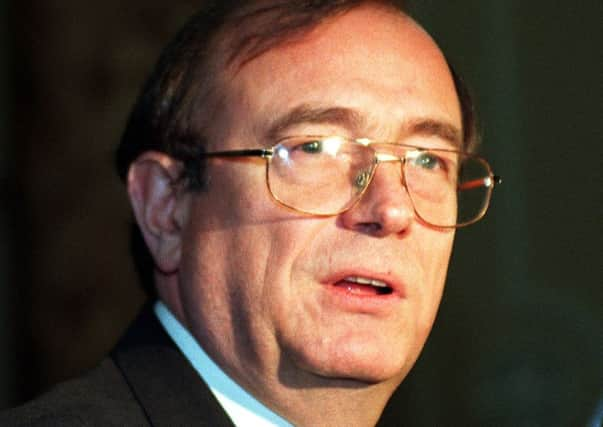Leaders: Sewel must go for sake of House of Lords


The most frequent criticism of the Lords themselves is that they are unelected, but that seemingly flagrant disregard of democracy has not yet been enough to bring about change.
Supporters argue the Lords are a useful and necessary check on the Commons, scrutinising and amending bills on their way through Parliament.
Advertisement
Hide AdAdvertisement
Hide AdNevertheless, the impression endures that the Lords is an anachronism which will only have its credibility further undermined if it is not dragged into the 21st century. Public perception often overlooks the valuable political wisdom that can be found in the chamber, and remains fixed on a privileged and unaccountable elite.
With an image problem already firmly established, what the House of Lords doesn’t need is a scandal over the deputy speaker allegedly snorting drugs from a prostitute’s breasts using a £5 note. Further revelations appeared yesterday over the conduct of Lord Sewel, pictured wearing a bra and recorded describing David Cameron as “the most facile, superficial prime minister there’s ever been”. As former Commons Speaker Baroness Boothroyd concluded yesterday, you just couldn’t make it up.
After the story first broke, Lord Sewel made no statement but resigned as Lords deputy speaker and chairman of the Lords privileges and conduct committee. This, one could reasonably presume, was an acknowledgment by the lord that he had been caught in a compromising situation.
Condemnation has been universal, and the matter has been reported to the police. Yet Lord Sewel has chosen not to resign as a peer. Last night, it emerged he is on “leave of absence” from the House until any investigation into his conduct has been concluded, after which he will review his “long-term position”.
He need not put himself to the trouble of such soul-searching. If the peer has behaved in the way depicted, he should not return to the Lords. Any politician acting in such a manner brings shame and embarrassment to politics, and there should be no waiting for investigations or findings over whether a code has been broken. The matter goes beyond what might or might not be required by due process.
Lord Sewel’s reputation is in tatters, but the bigger issue is what damage he can do to the House of Lords by waiting to removed rather than resigning. Doing the honourable thing might be an unfortunate expression for anyone embroiled in such circumstances, but this is the only option open to the peer if he truly believes in the integrity and purpose of the House of Lords.
The right road to go down
THE installation of average speed cameras on the A9 was criticised when the road safety measure was first announced, because it would not be able to counter the danger posed by drivers having to switch between dual and single carriageway on the route. Some drivers can forget which section they are on, while others become frustrated at finding themselves behind slow-moving vehicles on single carriageway sections, leading to accidents when risky manoeuvres are attempted in overtaking.
The most effective way to reduce these problems is to make the entire road dual carriageway. This process will not be complete until 2025 at the earliest, but the findings from the first six months after the introduction of average speed cameras on the route are encouraging.
Advertisement
Hide AdAdvertisement
Hide AdAlthough the number of deaths has not decreased, police say that the four fatalities during the period did not involve overtaking or excessive speeding. And significantly, the number of serious injuries recorded has been cut by more than half.
Dualling the A9 has been described as the biggest ever transport project in Scotland, and will cost £3 billion. As such, we cannot expect this problem to be fixed overnight, and have to accept that the existing problems remain a danger for at least another ten years. However, the initial average speed results do appear to be making a difference to the casualty figures, and perhaps that is a bigger difference than many of us had ever expected. The speed cameras are not the final answer to the problem, but they can help us on the way to our destination – a bit safer than before.